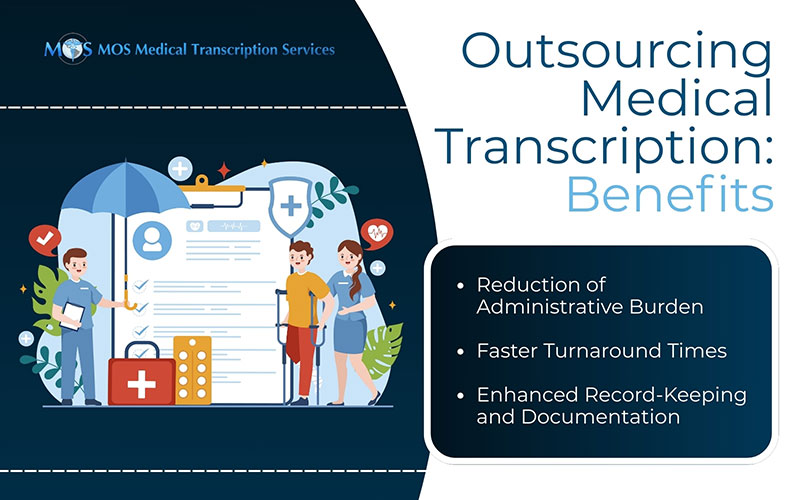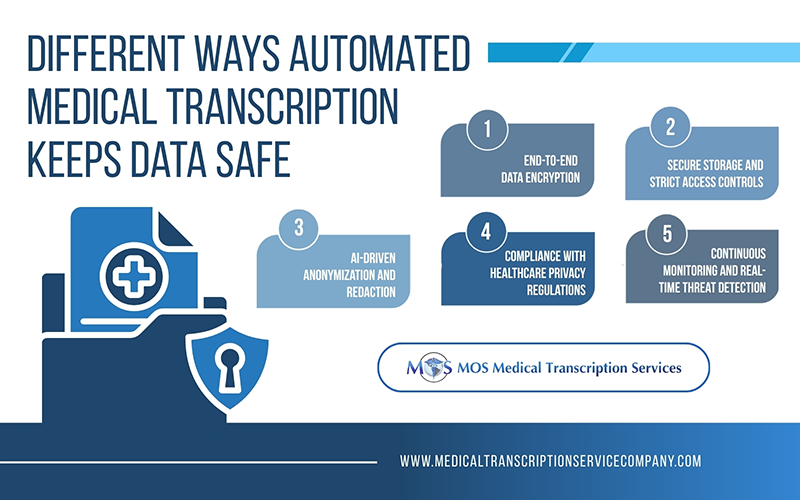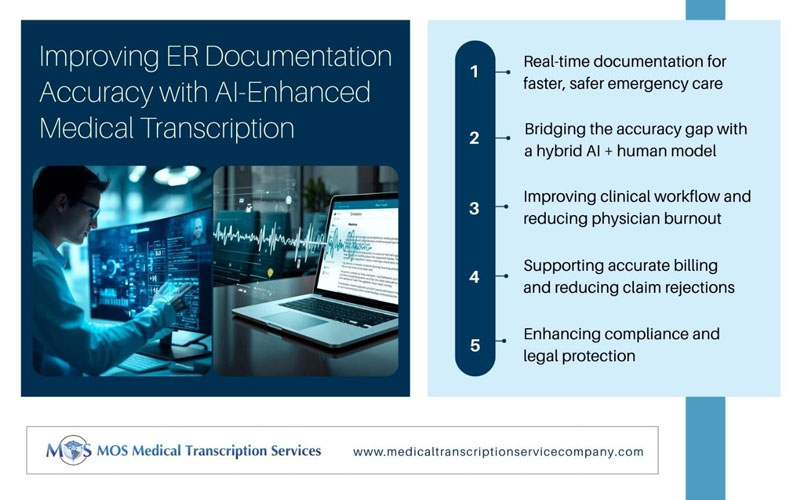Table of Contents
Outsourcing medical transcription can be a difficult decision, especially as it involves sensitive mental health records. Behavioral medicine transcription differs significantly from other medical specialties due to the complexity and variability of patient narratives. Unlike standard medical transcription, which primarily documents symptoms, diagnoses, and treatments, behavioral health records involve in-depth patient histories, evolving emotions, and unique terminology. Ensuring accuracy in these records is crucial for providing effective treatment. However, managing transcription in-house can be expensive and time-consuming. Partnering with a professional medical transcription company can help mitigate these challenges while improving the overall quality and accuracy of patient documentation.
Challenges in Transcribing Behavioral Health Patient Narratives
- Longer, More Complex Narratives: Behavioral health documentation often involves extended narratives rather than short, structured reports. Patients discuss their emotions, thoughts, and experiences over a span of days or weeks, requiring meticulous documentation. Unlike traditional medical reports that rely on clinical data, behavioral health notes must capture subjective patient expressions, making accuracy essential.
- Unique Terminology and Slang: Unlike other medical fields that rely heavily on standardized terminology, behavioral health practitioners often encounter informal language, slang, or culturally specific expressions. This presents a challenge for transcriptionists who are unfamiliar with the nuances of the field. Transcription errors or misinterpretations can alter the intended meaning of a patient’s report, potentially leading to inaccurate diagnoses or treatment plans.
- Lack of Standardization in Treatment Approaches: Unlike other medical specialties, where treatment plans follow clear guidelines, behavioral health treatment is highly individualized. Each patient’s progress is influenced by personal circumstances, emotional states, and external factors. Therefore, transcriptionists must be highly attentive to detail and context to ensure that medical records reflect the nuances of each case.
The Importance of Choosing a US-Based Transcription Company
- Transcriptionists with strong English language skills: Since behavioral health notes often include informal speech, cultural references, and idiomatic expressions, accuracy can suffer when outsourcing to overseas transcription providers. Non-native speakers may struggle with contextual nuances, increasing the likelihood of transcription errors. By choosing a US-based behavioral medicine transcription service, you ensure that transcriptionists are fluent in English and familiar with American dialects, slang, and medical terminology.
- Compliance with HIPAA and Confidentiality Standards: Behavioral health records contain some of the most sensitive patient information. Protecting these records is a legal and ethical responsibility, requiring strict compliance with HIPAA regulations. US-based transcriptionists are more likely to be well-versed in current data security laws, reducing the risk of non-compliance or data breaches. Investing in a reliable company that prioritizes confidential medical transcription can help protect both your patients and your practice.
- Experienced Team: Behavioral health transcription requires a deep understanding of the field, including knowledge of psychological disorders, therapy methods, and treatment variations. Partnering with experienced transcriptionists for mental health professionals ensures that patient records are transcribed with precision and context awareness. Before outsourcing, it is essential to inquire about the experience level of transcriptionists to guarantee that they can handle the complexities of behavioral medicine documentation.
Benefits of Outsourcing Medical Transcription
- Reduction of Administrative Burden: Managing in-house transcription requires hiring, training, and supervising staff, which can be costly and time-consuming. By outsourcing to a trusted provider, behavioral health professionals can focus on patient care instead of administrative tasks.
- Faster Turnaround Times: Delays in documentation can hinder patient care, especially in behavioral health, where treatment plans evolve rapidly. Therapy transcriptionists with expertise in verbatim documentation provide quick and accurate transcripts, ensuring that providers have up-to-date patient information.
- Enhanced Record-Keeping and Documentation: Accurate and well-structured transcripts improve communication between healthcare providers, leading to better coordination of care. With well-maintained records, practitioners can track patient progress more effectively and make informed treatment decisions.
Accurate transcription plays a vital role in behavioral medicine, ensuring that detailed patient narratives are documented with precision. Medical transcription outsourcing to a U.S.-based behavioral medicine transcription service improves accuracy, enhances compliance, and reduces administrative workload. Choosing an experienced company with expertise in behavioral health ensure high-quality records essential for effective treatment. They can provide verbatim or non-verbatim transcripts, based on your needs. Investing in mental health transcription solutions is not just a convenience; it’s a crucial step toward better patient care.




